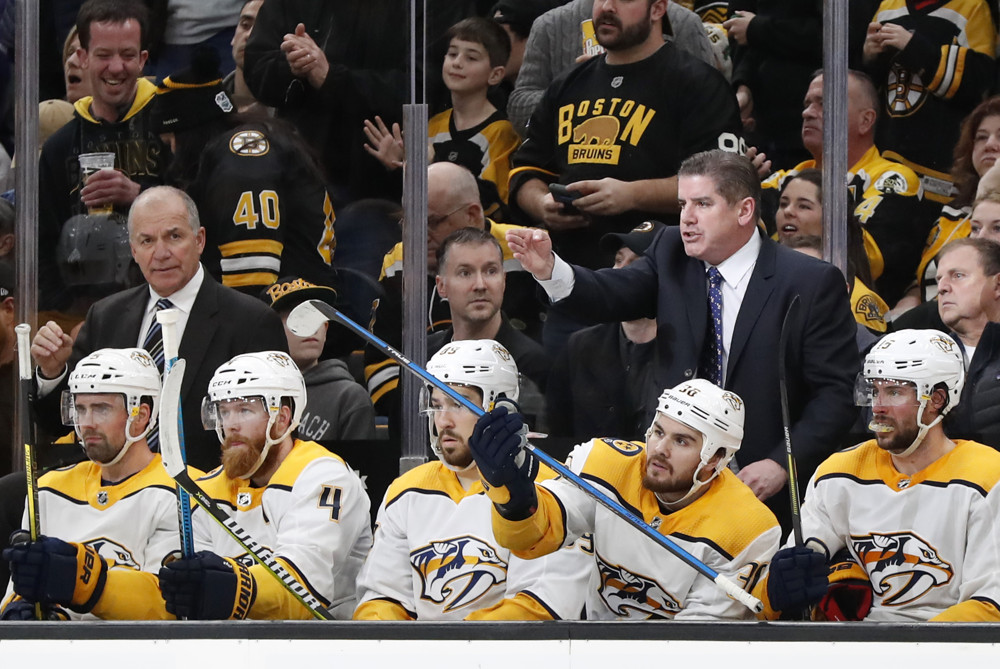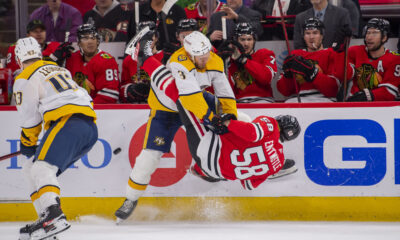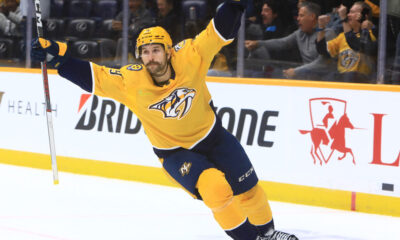At the close of a tumultuous 2019-2020 season the Nashville Predators face a new and daunting reality. Despite one of the most talented rosters in franchise history, the team struggled to find consistent results outside of a few standout performers. Even more concerning is that the top of the roster is laden with veterans, many of whom were acquired by GM David Poile at a high price both in terms of contract value and assets given up. Looking at the three big names to come in from outside the organization in recent years there is an alarming trend:
- Matt Duchene – dropped from 31 goals in OTT/CBJ to 13 in ‘19-20
- Kyle Turris – 27 goals his final season in OTT, 29 total in 3 seasons in NSH
- Mikael Granlund – 0.44 points/game in NSH after 0.83 in previous 2+ seasons in MIN
These are all high quality players who did not suddenly forget how to hockey, so what happened? Were they all simply bad fits with ex-coach Peter Laviolette or is it something more… culturally embedded with the Predators organization?
The Hypothesis
The prevailing idea is that Nashville’s history and culture as an organization superficially limits the production of forwards that come in from other teams. Taking a look back to the franchise’s early years under Barry Trotz the team was characterized by strong two-way play and persistent forechecking. A team that often lacked elite talent up front made up for it in hard work offensively.
After Trotz, Peter Laviolette’s teams had more talent but still focused on working the cycle and getting traffic to the front of the net to create scoring. Their respective tenures make up 20 years of a play style focused on work rate and defensive responsibility ingrained into the culture of the team. So it could be surmised that players like Duchene, Granlund or Turris more known for making plays in space would struggle in the “Nashville Way.” Contrary to this idea though is historical evidence of smaller skilled players like Steve Sullivan, Paul Kariya and JP Dumont thriving in Nashville under Barry Trotz.

The Conclusion
With the above factors in mind, perhaps the organizational theme of responsible two-way play is only part of the story. While recent additions have not produced to expectations, the overall history does not support the idea that talented forwards coming into the Predators organizational culture cannot be successful.
The other primary element is resetting the roster following the Peter Laviolette era in which David Poile spent multiple years loading up to compete for a Stanley Cup which often meant acquiring available talent without regard for how they fit the style. The Predators regressed as a team under Laviolette and the roster additions of Turris and Granlund did not work.
Now, with a coaching change and another early end to the season the Predators are at a crossroads. John Hynes will need to both change the mindset of the offensive players and better utilize the talent on the roster to reopen the Cup window of the current core. How they choose to go forward could mean charting a new course or more of the same.
We will explore how this gets done later this week!
Statistics courtesy of NHL.com












